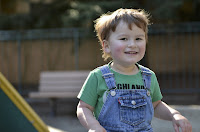5 Ways to Help Reduce Anxiety in Children with Aspergers

Many advancements have been made in recent years in order to help children with Asperger's Syndrome better manage emotional strife. Because the effects of Asperger’s can range from emotional hypersensitivity to difficulty expressing emotional affect, children diagnosed with Asperger's often require additional support. Anxiety for children with Aspergers can present a particularly challenging struggle for both the children and their families. Below are some carefully researched suggestions in order to reduce anxiety in children with Asperger’s Syndrome. First, children with Aspergers often function well with routines and struggle when routines are broken or something unexpected suddenly springs up. Predictable daily schedules will help reduce and prevent anxiety in a child with Asperger's because he or she can understand what to expect on a daily basis out of any situation. Nonetheless, changes in our routines are inevitable. When changes are anticipated to


